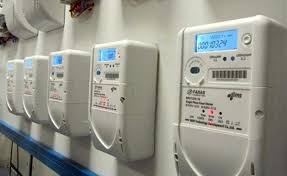The Federal Government of Nigeria has announced a fresh plan to improve electricity supply in the northern part of the country. Minister of Power, Chief Adebayo Adelabu, made this known during a two-day retreat recently organised by the Senate Committee on Power in Abuja.
Adelabu stated that the government is working on several projects that will increase power generation and distribution in the North. These include the Makurdi hydropower project, the Kaduna thermal power plant, and the Katsina wind farm.
Speaking at the retreat, Adelabu said, “We are looking at developing the Makurdi hydropower project, which has the potential to generate about 1,000 megawatts of electricity. We also want to complete and revive the Kaduna thermal plant, which has been abandoned for the past five years. The plant has a 215-megawatt capacity and is currently 87 per cent completed. We are working hard to bring it back to life.”
He added that the Katsina wind farm, which has a 10-megawatt installed capacity, will soon be handed over to private investors. The Katsina State Government has already shown interest in partnering with the private sector to revive the wind farm project that has been idle for some time.
“The Katsina State Government has expressed the desire to take up the project with some private investors. A feasibility study has been commissioned to explore options for concessioning the wind farm,” Adelabu said.
These efforts come as part of the federal government’s broader plan to improve electricity supply, especially in regions where access to stable power remains a challenge. Northern Nigeria has suffered from poor electricity supply due to limited generation capacity and weak transmission infrastructure.
To complement the power generation projects, Adelabu also spoke about the ongoing efforts to bridge the metering gap in the country. He revealed that at least 200,000 new prepaid meters are expected to be delivered to the Federal Government in May 2025 for distribution to electricity consumers.
This development follows the recent deployment of 75,000 meters in April 2024. The minister described the metering initiative as key to addressing revenue losses and building consumer confidence in the power sector.
“The gap in metering is a major cause of revenue loss and distrust between electricity providers and consumers. That is why the government has launched a N700 billion Presidential Metering Initiative, alongside a World Bank-supported programme aimed at deploying 4.3 million meters before the end of 2025,” he said.
Adelabu explained that there is still a metering shortfall of around seven million households across the country. He stressed the importance of closing the gap to ensure fair billing and financial sustainability for electricity distribution companies.
“We are not yet where we want to be because of underinvestment and inefficiencies in the power sector. But we are committed to bridging this gap. This is why we are encouraging private sector investment and looking into regionalising the transmission network to reduce the risk of grid failure,” Adelabu explained.
He further pointed out that higher electricity remittance levels recorded by the two electricity distribution companies (DisCos) in Lagos are due to better infrastructure in the southern region, compared to what is available in the North. He said there is an urgent need to upgrade northern grid infrastructure to match other parts of the country.
The Federal Government has continued to face pressure to improve electricity supply, especially as unreliable power affects businesses and living standards in many parts of Nigeria. The latest push by the Ministry of Power is expected to address some of these issues, especially in underserved areas in the North.
The power minister’s comments come at a time when stakeholders in the energy sector are calling for urgent reforms and stronger investments to ensure Nigeria achieves stable electricity supply across all regions.
